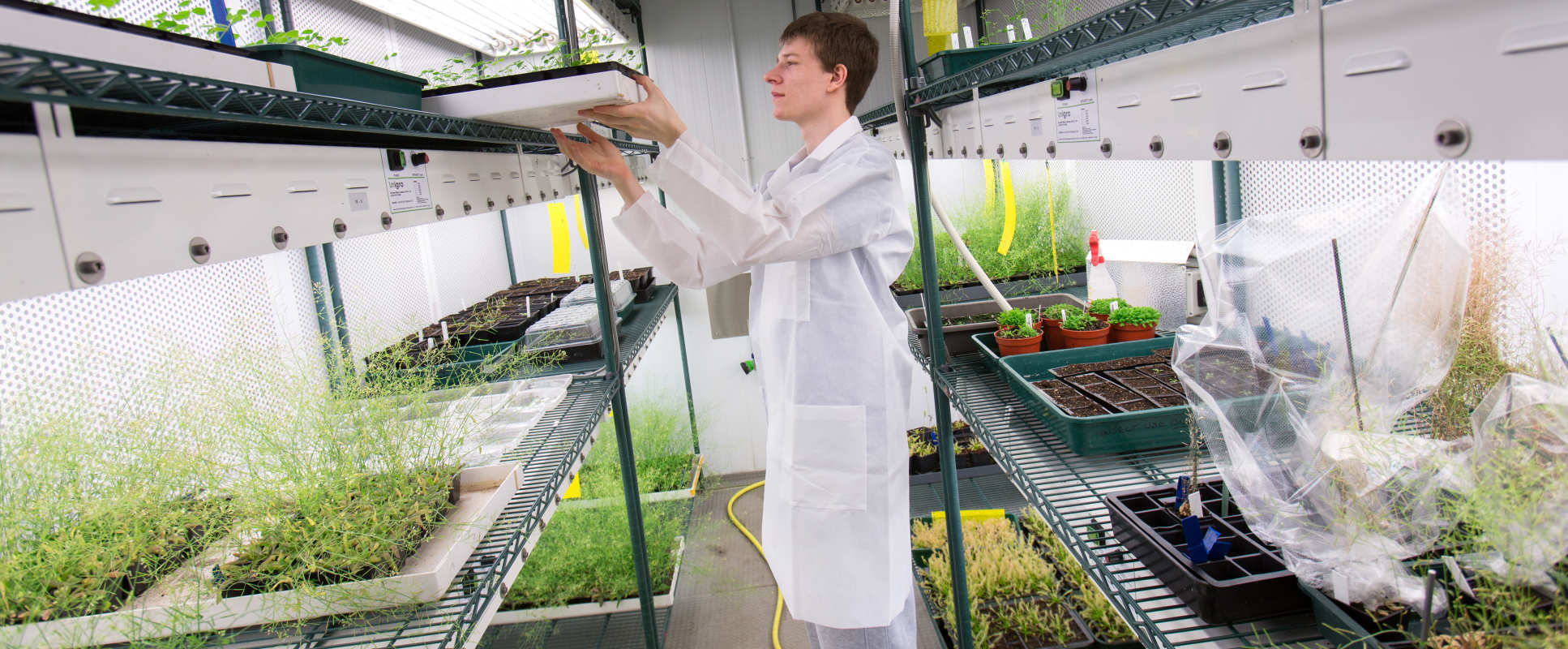
Sustained population growth fuels an ever-increasing demand for food. The UN Food and Agriculture Organisation forecast that global food production will need to increase by 70% by 2050 to meet this growing demand. Expanding populations and rapid urbanisation are leading to grand challenges on the nexus of resource, food, energy, and waste globally. Food and energy production are interconnected and complex, not only under increasing demand and stress but also face land-water resource scarcity and socio-environmental constraints.
Climate change will reduce the reliability of the food supply through altered weather patterns and increased pressure from pests and diseases. Agriculture will need to respond by enhancing the yield and quality of produce, utilising less water and energy, whilst also reducing waste and adverse environmental impacts. Ultimately, the challenge will be to deliver substantial improvements in crop yield and a reduction in crop losses through a combination of biotechnology, education, sustainable pest control and an integrated approach to managing agricultural landscapes.
The vision of the Secure and Sustainable Food Chain research programme is tackling the different but related food security challenges faced by developed and developing countries. We aim to minimise the negative environmental impact of food production and increase the efficiency and sustainability of crop production through improved management of key resources and the reduction of waste. We also want to carry this ethos into the development of policies and regulations, sustainable production and quality supply through enhanced food processing, manufacturing and distribution to support the development and deployment of novel and innovative engineering approaches to current agricultural methodologies.
Fostering collaboration between leading chemical biology and agri-science research communities drawn from academia and industry and in partnership with policymakers we strive to deliver high-impact multidisciplinary research projects targeting this global challenge. We will support the speedy translation of research into practice promoting the development and adoption of novel agricultural technologies; promoting the development and implementation of policies, regulations and incentive schemes that enable sustainable food security.
Key Imperial infrastructure: AGRI-NET (Agri-science chemical biology network); Agri Futures Lab; Centre for Process Systems Engineering; Grantham Institute – Climate Change and the Environment; Manufacturing Futures Laboratory; Institute of Chemical Biology
Theme leads
Dr Laura Barter
Dr Laura Barter is a Royal Society University Research Fellow working in the Chemistry Department. Her multidisciplinary scientific background bridges the physical & life science disciplines. The underlying theme of her research is to determine quantitative structure function relationships in biological systems employing optical spectroscopic, biochemical and proteomic techniques allied with modelling and calculation. She has a particular interest in the inefficiencies of Photosynthesis, and has research programmes investigating both the light dependent and Calvin Cycle reactions.
Dr Rudiger Woscholski
Dr Rudiger Woscholski’s research interests are focussed on employing chemical biology approaches to answer questions in lipid dependent signalling. In particular, lipid phosphatases and kinases are the main targets to generate suitable chemical tools that can be used to probe and quantify these targets and their regulators. Since 2006 this work involved the use of synthetic as well as physical chemistry to generate new tools and techniques, respectively, to probe and disturb cellular signalling. In the last two years Woscholski has engaged with other plant scientists to port the achievements generated in chemical biology towards the plant sciences.
Business School
Dr Elisabetta Aurino
/prod01/channel_3/media/migration/research-groups/Aurino,-Elisabetta--tojpeg_1475764326456_x4.jpg)
Dr Elisabetta Aurino
Research Fellow, Food Security
Professor Renata Kosova
/prod01/channel_3/media/migration/research-groups/Kosova--tojpeg_1487853409511_x4.jpg)
Professor Renata Kosova
Associate Professor of Economics
Dr Marisa Miraldo
/prod01/channel_3/media/migration/research-groups/Miraldo--tojpeg_1495459943298_x4.jpg)
Dr Marisa Miraldo
Associate Professor in Health Economics
Professor Franco Sassi
/prod01/channel_3/media/migration/research-groups/Sassi--tojpeg_1487853858163_x4.jpg)
Professor Franco Sassi
Professor of International Health Policy and Economics
Department of Life Sciences
Tim Barraclough
/prod01/channel_3/media/migration/research-groups/Barraclough--tojpeg_1487855918772_x4.jpg)
Tim Barraclough
Professor of Evolutionary Biology
Dr Oliver Windram
/prod01/channel_3/media/migration/research-groups/Windram--tojpeg_1488292567727_x4.jpg)
Dr Oliver Windram
Research Fellow (NERC Fellowship)
Department of Chemistry
Professor Joshua B. Edel
/prod01/channel_3/media/migration/research-groups/Edel--tojpeg_1492598773885_x4.jpg)
Professor Joshua B. Edel
Professor of Biosensing & Analytical Sciences
Dr Rudiger Woscholski
/prod01/channel_3/media/migration/research-groups/Woscholski--tojpeg_1487859229666_x4.jpg)
Dr Rudiger Woscholski
Reader in Chemical Biology
School of Public Health
Professor Paolo Vineis
/prod01/channel_3/media/migration/research-groups/Vineis,-Paolo--tojpeg_1475765802929_x4.jpg)
Professor Paolo Vineis
Chair in Environmental Epidemiology
Centre for Environmental Policy
Professor Sir Gordon Conway
/prod01/channel_3/media/migration/research-groups/Screen-Shot-2019-10-17-at-14-18-18--tojpeg_1571318313897_x4.jpg)
Professor Sir Gordon Conway
Chair in International Development
General enquiries
Georgia Levey
Centre for Translational Nutrition and Food Research Coordinator
Commonwealth Building
Hammersmith Campus
/prod01/channel_3/media/migration/research-groups/Barter--tojpeg_1487856542620_x4.jpg)
/prod01/channel_3/media/migration/research-groups/Drake,-Lesley--tojpeg_1475764702268_x4.jpg)
